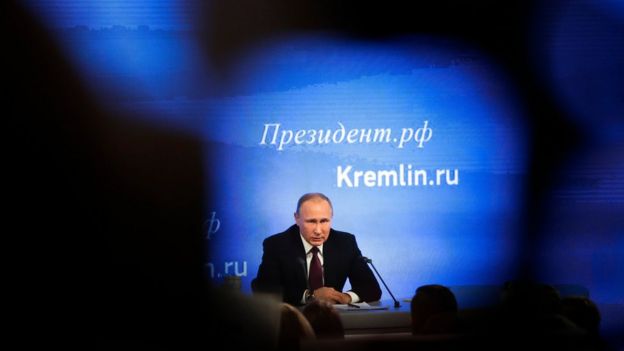Russia's 'Humpty Dumpty' hackers: What were they trying to do?
 Russian police have captured individuals from a noticeable gathering of programmers that spilled data about Russian authorities and state services. BBC Moscow reporter Steve Rosenberg meets a "Humpty Dumpty" part hanging out in Estonia who clarifies why the famous gathering did what they did.
Russian police have captured individuals from a noticeable gathering of programmers that spilled data about Russian authorities and state services. BBC Moscow reporter Steve Rosenberg meets a "Humpty Dumpty" part hanging out in Estonia who clarifies why the famous gathering did what they did.In an eatery in the city of Tallinn, Alexander Glazastikov reveals to me how he got into the matter of taking and spilling data.
"I was exhausted with my occupation, I needed to take a stab at something else. Something fascinating."
Alongside previous writer Vladimir Anikeev, Glazastikov made "Unknown International". The gathering got to be distinctly known as "Shaltai Boltai" - the Russian name for "Humpty Dumpty". Mr Anikeev is presently collared in Moscow.
"I resembled an editorial manager and in the meantime I did some examination," Alexander clarifies. "At the point when Mr Anikeev gave me downloaded letter drops, I looked through them attempting to discover snippets of data which could enthusiasm to distribute."
'Adversaries of the Kremlin'
He depicts the gathering's work as initially "a politically-situated venture contrary to the Kremlin", with Mr Anikeev giving the private messages of "top Russian authorities", and additionally intense Kremlin-associated businesspeople.
"We needed to make this data open," Alexander says. "We were ideological foes of the Kremlin. Afterward, yes, there was some trade: we sold something, or erased old posts for cash. Be that as it may, initially the venture was to battle debasement."
The spilled data highlighted the size of defilement in Russia.
"We found some legitimate individuals," he says, "yet I can check them on fingers of one hand. Nearly everybody is degenerate."
Did the gathering ever attempt to hack the president?
"Putin is not an IT fellow. Be that as it may, Medvedev is," he answers. On one event, Humpty Dumpty hacked Prime Minister Medvedev's Twitter account.
In the end the gathering started to feel the weight.

Post a Comment